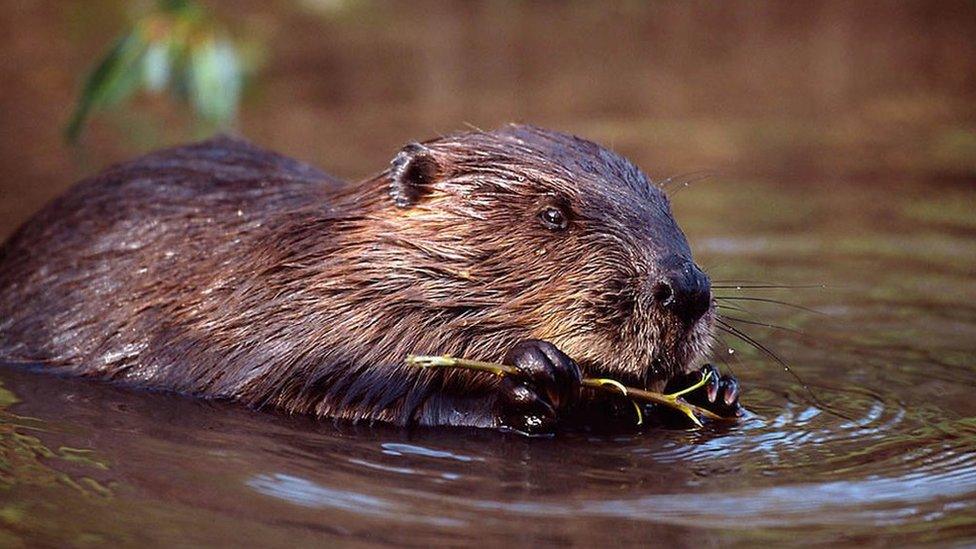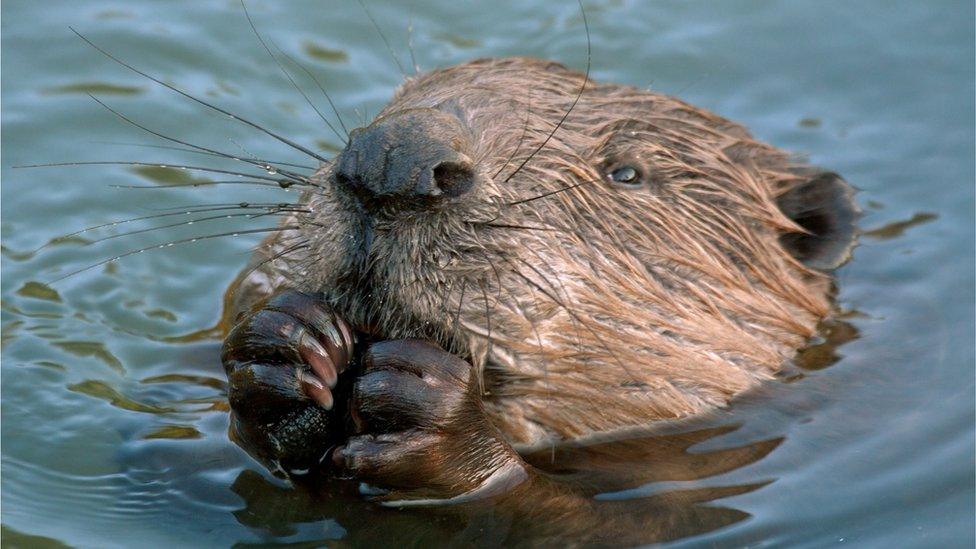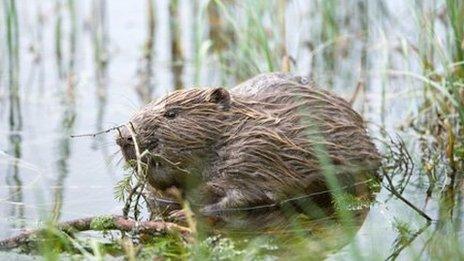Bid to return beavers to Wales after centuries' absence
- Published

Plans to reintroduce beavers to Wales after an absence of centuries are moving ahead after wildlife experts submitted an application to release 10 of the creatures into the wild.
The trial in an undisclosed location in southern Wales could begin this year.
Scotland recently listed beavers as a protected species there following a successful reintroduction.
Natural Resources Wales (NRW) said it would have to consider the impact on existing wildlife and land use.
The Welsh Beaver Project first submitted an application over a year ago to NRW and said, following this subsequent submission, a public consultation would be held.
The group has been working towards this for years, and has previously identified the River Rheidiol in Ceredigion as a preferred location to reintroduce them.

Beavers' history in Wales

In the 10th century, Hywel Dda, who was king of much of Wales, wrote in his laws that beaver skins were royal privileges, and were valued at 60 pence, or the worth of a "best horse", about £5,000 in today's money.
The historian Gerald of Wales noted in the 12th Century there were beavers on the River Teifi at Cilgarran in Cardiganshire (now in modern-day Pembrokeshire).
Oral history refers to beavers at Nant Francon in Snowdonia, north Wales, in the latter part of the 17th Century.
The species is believed to have become extinct in Wales around 400 years ago, after it was hunted for its pelt and scent glands.
European beavers, which would be introduced, are the same as those which once lived in Wales, as there is only one species of beaver native to Europe.
Source: Welsh Beaver Project

The five-year Scottish Beaver Trial saw a group placed in the Knapdale Forest, Argyll, while another emerged on the River Tay from illegal releases into the wild.
In England, a male and female have been released on the River Otter in Devon to boost the genetic diversity of a group already in existence, the country's only wild beaver population.
Alice Leow-Dyke, Welsh Beaver Project officer for the Wildlife Trusts Wales, said: "The evidence coming from Britain and Europe is they can be beneficial for ecology, helping with reducing flooding and filtering water, and have important consequences for the landscape."
She added beavers could help with habitat restoration, bringing light into overgrown areas and allowing other nature to thrive.
"With the beaver you're not looking at a single species, it can have such a wider benefit helping the ecosystem. Because we've had such a detrimental effect on the landscape for so long, this can help," she said.
Farmers and anglers have raised concerns the animals can damage the landscape and fish migration routes, and have called for conservation efforts to be focused on existing wildlife.
Ms Leow-Dyke said the scheme would have a net benefit, as well as providing an "enjoyment factor" of seeing the animals or the tell-tale signs of their presence, which could encourage children to engage with the natural world.
Liz Halliwell, Natural Resources Wales mammal ecologist, said beavers were once native wildlife and could create rich and varied habitats which make the environment "stronger and healthier".
However, she added: "Our assessment of any application for a licence would need to carefully consider the effects of a reintroduction on existing wildlife and land use."
She pointed to the interest in people coming to observe the beavers at the River Otter site, saying: "That's been benefiting the local pubs and B&Bs, and people are talking about beaver tourism, which is really encouraging."
- Published24 November 2016

- Published1 February 2015

- Published17 May 2013
